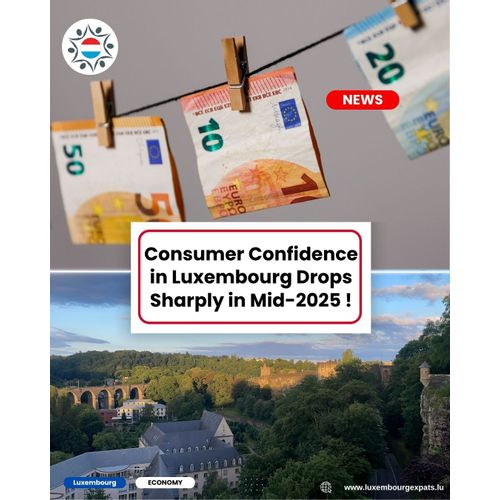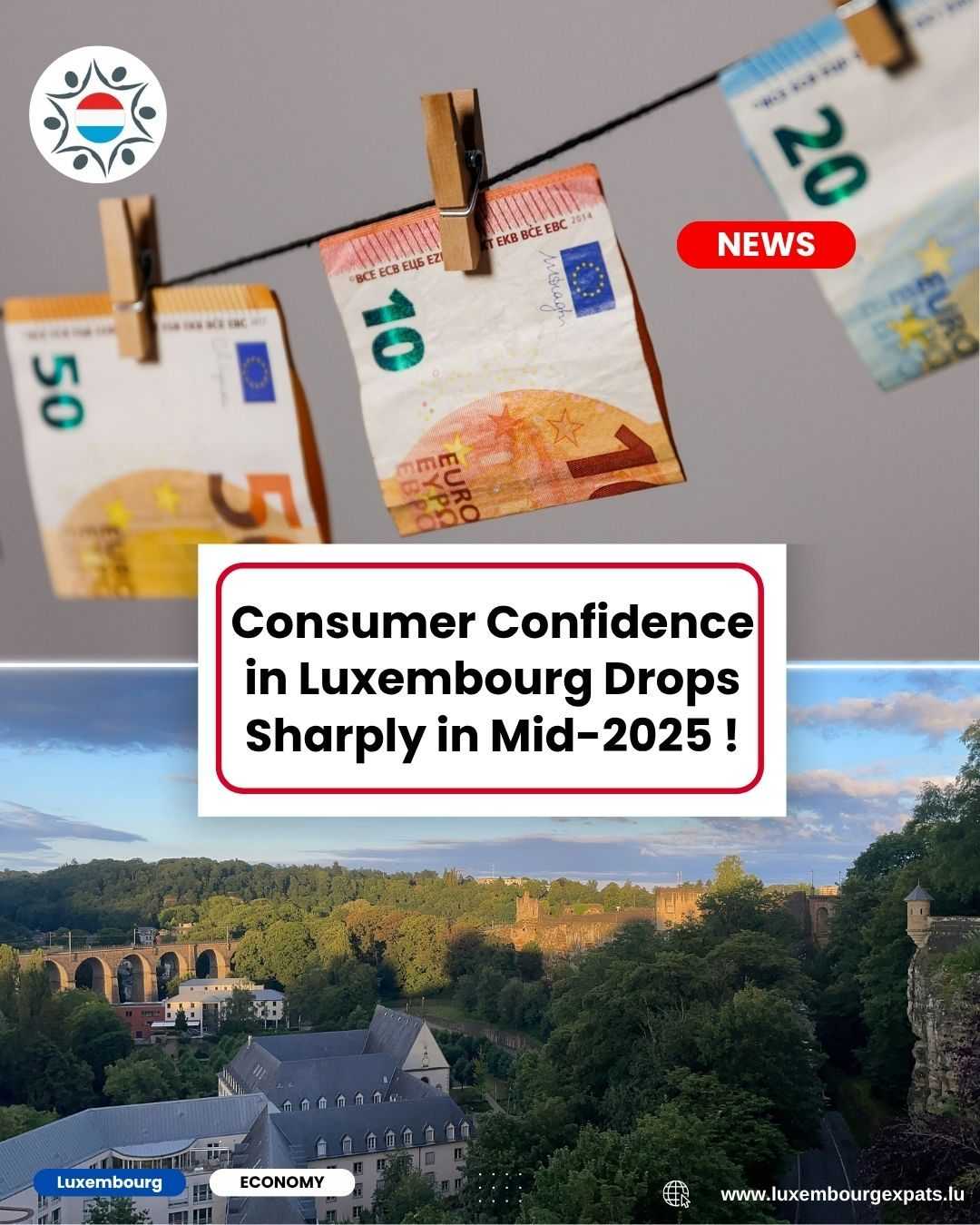Luxembourg Consumers Growing More Pessimistic as Confidence Slumps in Mid-2025
LuxembourgPosted on 22 July 2025 by TeamConsumer Confidence in Luxembourg Declines Markedly in Mid-2025: What It Means for the Economy
Luxembourg is experiencing a notable decline in consumer confidence as of mid-2025, signaling increasing apprehension among households about their current and future financial situations as well as the broader economic outlook. This shift in sentiment reflects a growing sense of caution that may ultimately influence patterns of consumption, saving, and investment across the country, with potential ripple effects on overall economic performance.
The Downturn in Consumer Mood
Recent economic indicators show that consumer confidence has fallen sharply compared to earlier in the year. Many households are expressing concerns not only about their immediate financial health but also about the wider trajectory of the economy. This shift is the culmination of several converging factors that have unsettled individuals and families, prompting them to rethink their spending habits and financial plans.
Underlying Causes
At the heart of this confidence decline is Luxembourg’s economic structure, which is heavily dependent on the financial sector. This sector has confronted a period marked by volatility and uncertainty. Global stock markets have shown uneven performance, while interest rate adjustments by central banks have affected profitability for banks, fund managers, and insurance companies alike. This uncertainty within the financial industry has weighed heavily on public perception of economic stability.
Beyond finance, other key sectors such as industry, manufacturing, and construction have not rebounded robustly from the setbacks caused by disruptions over the past few years. While there are positive signs emerging through business surveys, activity levels remain below pre-pandemic norms. Amid such a backdrop, households are also coping with pressures from rising living costs, including housing, energy, and everyday essentials, further constraining disposable income.
Impact on Household Spending and Savings
As confidence falters, consumers tend to become more reserved in their spending. In Luxembourg, this trend has already manifested in slight reductions in household expenditures during the early months of 2025. There is particular restraint around discretionary spending and major purchases, as households prioritize financial security in the face of uncertainty.
Interestingly, despite these cautionary moves, average household expenses remain relatively high compared to earlier years, owing in part to inflationary pressures. However, savings rates have stayed elevated, indicating that many are choosing to build a financial cushion rather than increase consumption. This heightened savings behavior acts as a double-edged sword: while it offers families greater security, it may simultaneously dampen demand, which is a crucial driver of economic growth.
Business Sentiment and Economic Growth Prospects
The drop in consumer confidence is accompanied by a similar mood shift among businesses. Increasingly, companies are signaling caution about the future, reflecting concerns over demand consistency and costs. This wariness affects decisions around new investments, recruitment, and expansion, with many firms opting to maintain lean operations until greater clarity emerges.
Economic growth forecasts for Luxembourg have been revised downward in light of these developments. While the country managed some recovery toward the end of 2024, the early months of 2025 have shown softness in several performance metrics. Experts anticipate that growth will remain subdued through the year, influenced by external economic pressures and internal adjustments within key sectors.
Social and Policy Implications
The slowdown in confidence and activity poses challenges for policymakers tasked with navigating a delicate balance. On one hand, there is a need to keep inflation in check and ensure fiscal sustainability; on the other, stimulating economic momentum to safeguard employment and business viability remains a priority. Targeted measures to support innovation, workforce development, and consumer purchasing power could be key in fostering resilience.
From a societal perspective, prolonged economic uncertainty may affect public mood and social cohesion. If households continue to feel financially insecure, the pressures on mental health, savings adequacy, and overall quality of life could increase, potentially influencing political discourse and public expectations.
Looking Ahead: Paths to Recovery
Despite the current challenges, there is room for cautious optimism. If global markets stabilize and inflationary pressures ease, Luxembourg’s economy could regain footing in the medium term. Improvements in financial sector performance and revitalization in industry and services would support a return to healthier growth rates. Additionally, ongoing adjustments by businesses and consumers to new economic realities may eventually lead to more sustainable spending and investment patterns.
For these outcomes to materialize, continued vigilance and adaptive policy responses will be essential. Public communication that fosters realistic expectations, coupled with initiatives that encourage innovation and inclusivity, can help rebuild confidence both among consumers and businesses.
The marked decline in consumer confidence in Luxembourg during mid-2025 reflects widespread uncertainties touching financial stability, sectoral performance, and cost-of-living pressures. This shift has already impacted household spending behaviors and business outlooks, signaling a cautious economic phase ahead. While risks remain, the potential for recovery exists if conditions improve domestically and internationally. Ultimately, the evolving sentiment underscores the importance of balanced strategies that prioritize resilience and sustainable growth to guide Luxembourg through this period of adjustment.
Join the exclusive network for expats in Luxembourg luxembourgexpats.lu
I am your contact
Team
Chat









